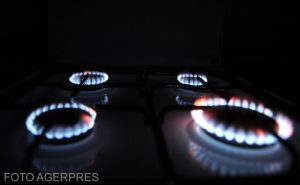The Bucharest government approved, in its latest meeting, the update of the emergency plan for the security of natural gas supply in Romania. The Government’s spokesman, Mihai Constantin, explained that the measures adopted are aimed at securing energy resources and supporting the population, in order to get through next winter well. He specified that the document complies with European norms and was drawn up based on consultations with the main players on the Romanian natural gas market. The Government will approve, in its next meeting, the measures regarding the level of safety in the functioning of the national energy system. Among the objectives of the winter program is the evaluation of consumption between November 1, 2023 and March 31, 2024, to ensure its quality and safe supply.
For the first time since the Ministry of Energy has been developing the winter plan, the increasing influence of prosumers in covering consumption at the national level has been considered. A prosumer is a final customer that owns electricity production facilities, including cogeneration, whose specific activity is not the production of electricity. A prosumer consumes, can store, and also sell electricity from renewable sources. The number of prosumers is constantly increasing in Romania. More than 63 thousand prosumers were registered in Romania at the end of April, according to data provided by the National Energy Regulatory Authority.
In his turn, minister Sebastian Burduja, said that Romania is ready to face the next cold season, the gas deposit being almost 90% full. This means that the country will successfully get through a normal winter season, relying exclusively on gas from domestic production and the available Romanian gas stocks.
As regards consumers, Minister Burduja said that the Government has no plans to give up the compensation-ceiling scheme applied to gas and electricity, at least until the spring of next year. The capping and compensation measures entered into force on November 1, 2021, both for domestic consumers and for business operators, after prices had exploded internationally and many Romanians had received very high gas and electricity bills. The conflict that erupted in February 2022, after Russia attacked Ukraine, brought new turbulence to the energy market. (Mihai Pelin, Radio Romania International)











